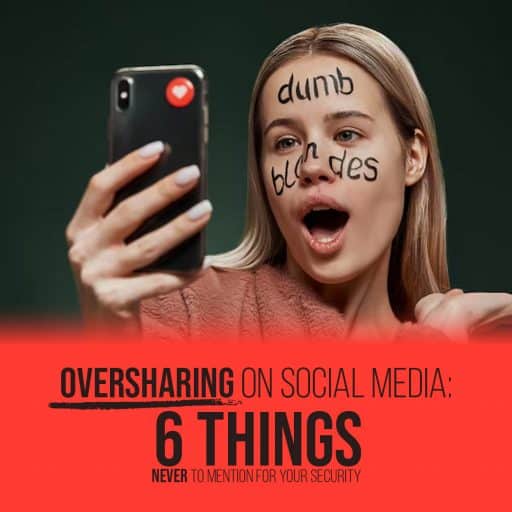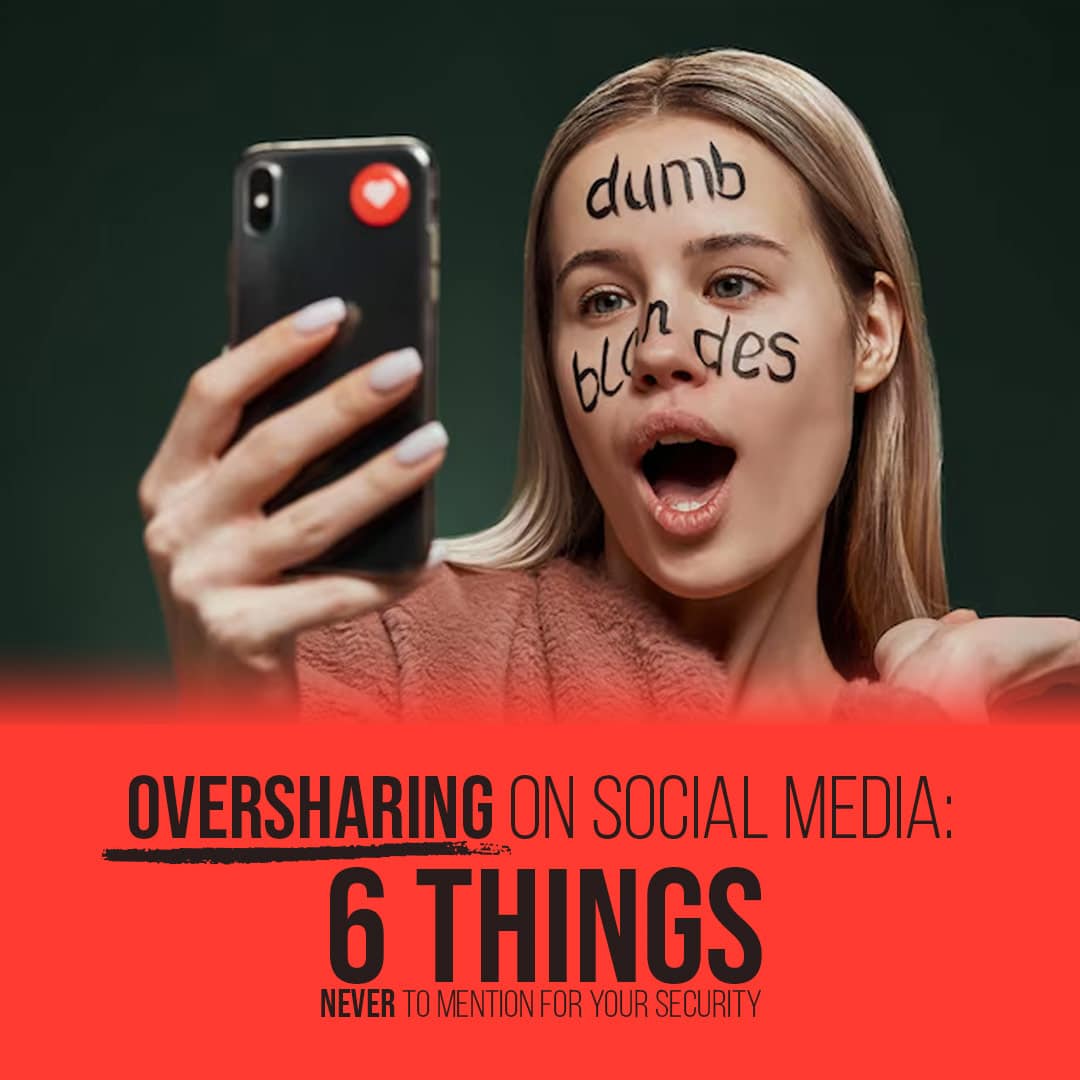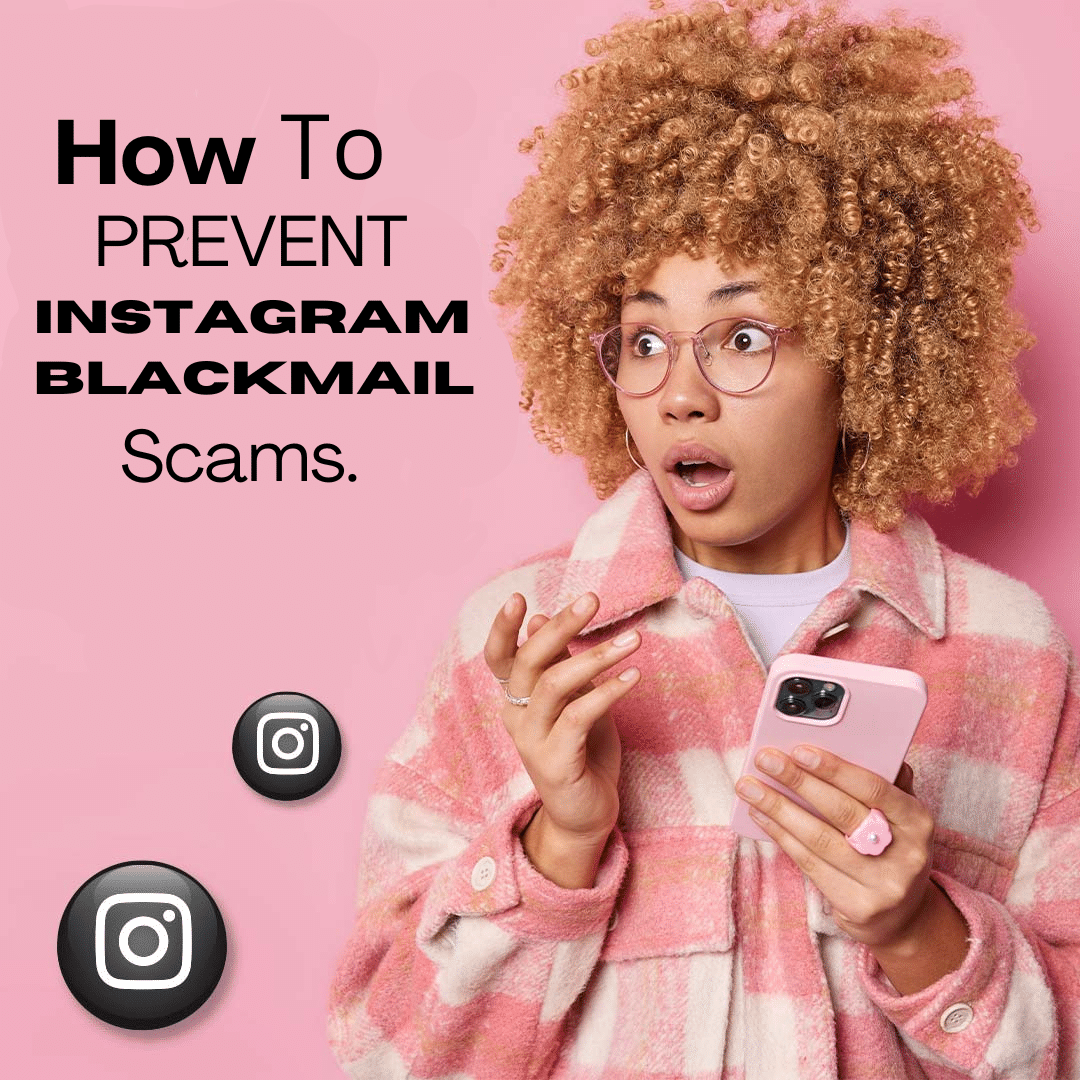Social media allows everyone to interact with people all over the world and most of us are on social media. We use social media to connect with friends and family, engage with people who share a hobby, or content creators who share entertaining posts.
Many social media platforms encourage us to take part in the social aspects by posting about the places we go to. Many of us share celebrations online, tag our friends and family, and mention many aspects of our personal lives.
We know that some things we just don’t share online. We don’t want to tell people our passwords yet some information we share may provide clues to it. We may avoid engaging complete strangers in public about sensitive information but give that same information up on social media.
Many of our online habits go against what we do in person because these platforms feel removed from us. However, social media can be used against its users and provide useful insight to those who seek to exploit the information we provide.
How Does Social Media Work?
Social media platforms offer different experiences. The media they actually present to the users shapes the community. Some social media platforms also tend to attract certain demographics as well.
Platforms like X, formerly known as Twitter, allow for images and videos to be posted, but they’re most known for text posts. Instagram was originally an image-focused platform that expanded more toward videos.
Facebook was born from the web-focused days that incorporated easy sharing of posts, images, videos, and text with elements of blogging. There are social media platforms like Reddit that are more forum-based.
What all these platforms share is the ability to give followers and passersby a glimpse into the user’s life. These social media platforms give users a way to connect with people they do and don’t know. The unique dynamics of each platform change how the users share their experiences with each other.
In its broadest form, users share pictures, videos, or text about their lives. Some platforms give you the ability to tag others, share locations, and communicate openly in comments in regard to a post.
6 Things To Never Mention on Social Media
Because social media platforms allow you to share almost anything you want, there is the possibility of oversharing. Oversharing occurs when a user posts information that is clearly more information than the public should know or information that unintentionally shares more than the user may have intended.
Here are six examples of oversharing on social media and why you should never mention them:
1. Identifiable Information
With public posting, identifiable information can become a source for someone to track you down. Identifiable information can be clues left in pictures, videos, and text.
When it comes to images and videos this can be from having street signs and addresses in the background of shots or unique locations. In text, this can be mentioning your place of work, the names of loved ones or pets, or significant dates.
On their own, the appearance of just one of these things in a post can seem harmless. All together, they begin to construct methods to identify you specifically. These clues are all contextual and someone looking to do harm can quickly build a profile on you using your social media.
Many hackers and scammers use social media to mine for information about a person to then use in phishing attacks. A phishing attack is when a scammer tries to get personal information from someone by pretending to be a family member, friend, or coworker.
2. Location Tagging
Many social media platforms allow, or even encourage, location tagging. This is when you can mark yourself as having visited a certain city, a business, or a landmark.
Like with the identifiable information we covered above, this type of social media post can lead someone directly to your location or give them insight into your habits. Sporadic location tagging can feel meaningless, but with context and other posting habits can be used to track you or identify you.
3. Travel Itinerary
When you plan a trip away from home, you’re often excited and ready to tell your followers about it. With the methods mentioned above, posting your travel itinerary can have harmful effects.
Someone looking to take harmful action against you can use context clues to find where you live. If they know you’re traveling or out of town, it could be an opportunity for burglary.
Sharing your trip is still a fun and reasonable thing to do, but wait until you’re home. You can post the details of your trip after the fact and let your followers know that you had a fun trip. The best practice would be to not mention your travel dates in advance and not post updates as the trip is occurring.
4. Financial Information
It’s good practice not to discuss finances on social media. Sharing information like who you bank with, what your credit card company is, and whether you keep emergency cash hidden in your home is oversharing.
Again, if someone is able to use the clues from your social media to pinpoint your location or they’re able to carry out a phishing attack, they know enough to execute a simple maneuver.
5. Complaints
Social media platforms have become a place for people to talk about their lives and to vent. Venting and complaining are healthy things to do, but you should take caution about what you decide to talk about, the details you go into, and who can see that information.
A scammer could use the information from your complaint to identify you or even perform a phishing attack. If someone were to complain about a brand and the scammer has enough of your information to contact you, they may pretend to be the brand you were concerned with.
They could offer their apologies and a way to make amends by having you click a link to get a discount. By clicking the link, you could be introducing your device to malware or giving up information that could be used against you later.
6. Personal Information
It’s good practice to not give away any personal information. This can mean not talking about your birthday, not talking about personal life, such as names of family members, and not talking about your past.
Scammers skilled in social engineering can use every bit of personal information you provide to tie to something else. Your username, birthday, and whatever else the platform allows you to share as part of your bio can be used against you.
How Do I Sanitize My Social Media?
Auditing your social media is a great way to prevent any possible future attacks. Even if you’re not the direct target of an attack, someone may use your information to target someone you know.
Use our six tips of not what to share along with these steps to sanitize your social media to keep yourself and others safe:
Curate Your Friends List
Take a look at the people you follow and those who follow you. Make sure you recognize all of the accounts that you’re friends with. Anyone you don’t recognize or engage with could be a fake account. Remove the unwanted friends and stick to the people you know and want to have access to your posts.
Opt for Private Over Public
Many social media platforms allow the user to set their profile as public or private. A public profile is usually the default which means anyone can see your page/account and your posts.
Making your profile private means that the only users who can see your posts or profile are those who you accept as friends. Check the settings of each of your accounts and what a private profile will look like to outsiders to get a feel for what information you can protect.
Remove or Hide Posts
If keeping a public profile is ideal, you may benefit from removing, hiding, or editing posts. These options should be available on all or most platforms and will be a great way of sanitizing posts that overshare. Take some time to look through your post history to see if you ever mentioned things that fall within our six things to never share on social media.
What To Do if Your Personal Information Has Been Used
Digital Forensics is equipped to help you control social media situations caused by oversharing. We will use our proprietary tools to identify threats and ensure you can control situations involving bad actors, scammers, and hackers.
Our team of experts will unveil the threat, the methods they used, keep your personal information from being shared, and assist you with securing your accounts for good. When it comes to matters of cybersecurity, you can get control of the situation and we can help.
Sources:
Social Media Fact Sheet | Pew Research
Unveiling the Dynamics of Modern-Day Social Media: Navigating the Digital Landscape | LinkedIn
Cyber Criminals Target Victims Using Social Engineering Techniques | IC3






